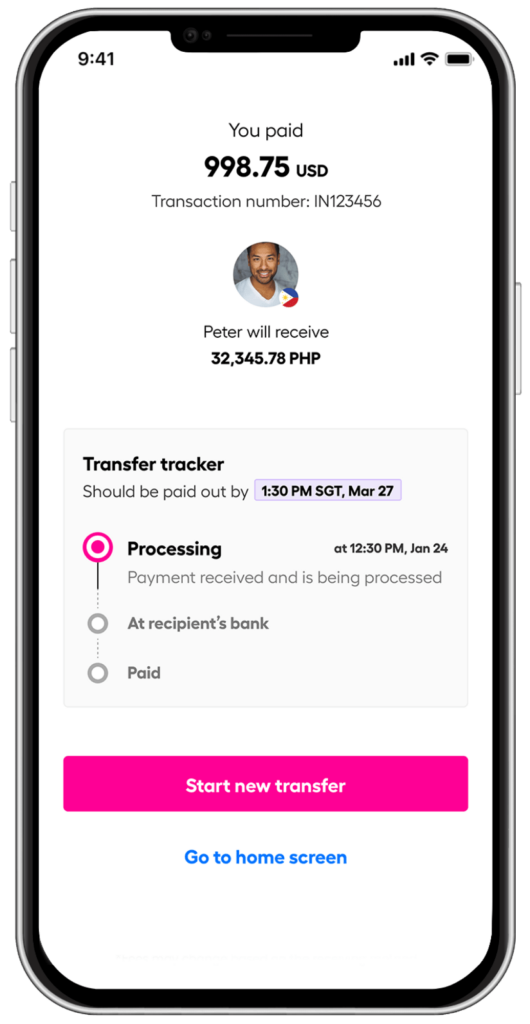The ultimate guide to understanding and conquering the GRE exam

This article covers:
- GRE exam full form
- What is GRE exam and what is GRE exam used for?
- GRE exam is for what purpose?
- GRE exam syllabus
- GRE exam duration
- GRE exam eligibility
- GRE exam fee
- GRE exam dates and how many times GRE exam is conducted in a year?
- When to book GRE exam date?
- GRE exam registration
- How to prepare for GRE exam?
- GRE exam total marks
- How tough is GRE exam?
- Before you go…
The GRE exam, formally known as the Graduate Record Examination, is a pivotal step on the path to higher education for countless individuals. But what is the use of GRE exam? Well, it serves as a standardized assessment tool that helps graduate and business schools worldwide evaluate the qualifications of applicants. It’s designed to measure essential skills such as verbal reasoning, quantitative reasoning, and analytical writing.
Now, as you embark on this journey, it’s essential to understand the GRE’s structure and how to conquer it. How long is the GRE exam? What are the steps for registration, and what tips and tricks can give you an edge on test day? We’re here to explore all of that and more. So, let’s dive in!
GRE exam full form
So, we’re all aware that the GRE is another one of those entrance exams, right? But ever wondered what GRE actually means? It’s short for Graduate Record Examinations.
What is GRE exam and what is GRE exam used for?
You might be thinking GRE exam is just another exam to add to the list, right? Your next two questions might be:
GRE exam is for what purpose?
Why is GRE exam required?
Well, the GRE, or Graduate Record Examinations, is a standard test that many graduate schools, especially in the United States and Canada, and even some in other countries, require for admission.
So, if you’ve got your sights set on a particular school, think of the GRE as your golden ticket in!
There are actually two types of GRE exams you could take – the GRE General Test and the GRE Subject Test.
The GRE General Test is your ticket to show schools that you’ve got what it takes to succeed in graduate, business, and law school programs. It’s like saying, “Hey, I’m ready for this!”
On the other hand, the GRE Subject Test is your chance to flaunt your knowledge from your undergrad days in subjects like mathematics, physics, or psychology.
GRE exam syllabus
Here is the table of overview on the two different tests.
GRE Subject test
So, the GRE Subject Tests are like a spotlight on your knowledge and skills in a specific area of study. They’re designed for students who’ve majored in or have a strong background in Mathematics, Physics, or Psychology. So, if you’re taking the GRE Subject Test, expect the syllabus to revolve around these three subjects.
For the Math whizzes out there, the mathematics test consists of roughly 66 multiple-choice questions covering topics typically learned by math majors in college.
Half of it is about calculus and its applications – pretty much the bread and butter for math majors. Another 25% covers various forms of algebra and number theory. The rest of the questions cover other mathematical areas that most undergrad students would have studied. So, think of it as being split into three parts: Calculus (50%), Algebra (25%), and Other Topics (25%).
For the future Einsteins, the Physics test includes about 70 five-choice questions involving diagrams, graphs, experimental data, and descriptions of physical situations. The aim here is to test your understanding of fundamental principles and your ability to use them to solve problems.
Most questions are on topics from the first three years of undergraduate physics. The content is divided into several categories like Classical Mechanics (20%), Electromagnetism (18%), Optics and Wave Phenomena (8%), and several others. Plus, you’ll also find questions on mathematical methods used in physics.
Now for the Psychology enthusiasts, the Psychology Test has around 144 multiple-choice questions, each with five answer choices. Some questions are based on common materials like experiment descriptions or graphs. These questions cover the core knowledge you’d typically encounter in undergraduate psychology courses and may need different cognitive skills like recalling facts, analysing relationships, applying principles, etc. The questions align with the language, criteria, and classifications found in the DSM-5-TR.
The results show a total score and six percent correct sub scores in specific areas like Biological, Cognitive, Social, Developmental, Clinical, and Measurement/Methodology/Other. The content areas break down as follows: Biological (30 questions), Cognitive (29 questions), Social (19 questions), Developmental (18 questions), Clinical (23 questions), and Measurement/Methodology/Other (25 questions).
GRE General Test
So, what is the syllabus for the GRE exam? Let us break it down for you. The GRE General Test is like a sneak peek into the kind of thinking you’ll be doing in rigorous grad programs, especially in areas like business and law. It’s all about testing your verbal reasoning, quantitative reasoning, critical thinking, and analytical writing skills.
First off, there’s the Verbal Reasoning section. Here, you’re going to be flexing your analytical brain power, making sense of gaps in data, understanding different layers of meaning, distinguishing between main and minor points, and really getting to grips with the meaning of words, sentences, and entire texts.
Next in line, the Quantitative Reasoning section. This part is all about your ability to interpret and analyse data, solve problems using math models, and apply basic math principles.
Last, but not least, is the Analytical Writing section. This bit tests whether you can effectively articulate complex ideas, support your thoughts with relevant reasons and examples, keep a focused discussion going, and demonstrate your command over standard written English. Remember, the goal here is to respond directly to the tasks given – that’s how you show them what you’ve got!
GRE exam duration
Alright, now that we’ve got a good grasp on the two types of GRE exams and the subjects they cover, let’s chat about how many hours is GRE exam, shall we? It’s always good to know how much time you’ll need to block off in your calendar.
GRE subject test
So, starting from September 2023, there’s going to be a bit of a switch-up in how the GRE Subject Tests are delivered. They’re moving to a computer-based format. So, what does that mean for the GRE exam time?
Now, for the Mathematics Test, you’ll be looking at a total testing time of 2 hours and 50 minutes. But for the Physics and Psychology Tests, it’s a bit shorter – just 2 hours. And there’s no need to worry about timing individual sections because there aren’t any!
GRE general test
Measure | Number of Questions | GRE exam time |
Analytical Writing (One section) | One “Analyse an Issue” task | 30 minutes |
Verbal Reasoning (Two sections) | Section 1: 12 questions Section 2: 15 questions | Section 1: 18 minutes Section 2: 23 minutes |
Quantitative Reasoning (Two sections) | Section 1: 12 questions Section 2: 15 questions | Section 1: 21 minutes Section 2: 26 minutes |
As for the GRE General Test, there’s another change coming into play from September 22, 2023. The overall GRE exam time is being trimmed down to about 1 hour and 58 minutes. That’s right, less than 2 hours! And you’ll be tackling five sections in that time.
GRE exam eligibility
So, you’re pondering about the educational qualifications needed for the GRE? There aren’t really any specific eligibility criteria for taking the GRE Exam. But hold up! There are some rules about how many times you can take the GRE in a year.
So, keep that in mind while you plan your test-taking strategy!
GRE exam fee
You know, the GRE isn’t just a one-size-fits-all kind of test. There’s the General Test and then there are the Subject Tests. And not surprisingly, the costs vary for each. But that’s not all you’ve got to think about when it comes to budgeting for this test.
See, life has this funny way of throwing curveballs at us, doesn’t it? Maybe something comes up and you need to reschedule your test date. Or perhaps you need to switch up your test center. Well, guess what? You can do all of that, but it comes with a fee. So, make sure you’re taking those potential extra charges into account when you’re planning for your GRE journey.
Plus, did you know that the GRE offers a bit of financial relief if you’re in need? Yeah, that’s right! If you’re facing financial hardship or you’re currently unemployed, you can apply for a GRE Fee Reduction Voucher. To do this, you’ll need to fill out the GRE Fee Reduction Request form (it’s a PDF) and follow the instructions it gives on how to submit your materials to ETS.
Once they’ve approved your request, they’ll send you a voucher number via email. This usually happens within 2 weeks of ETS giving their approval. So, don’t worry, help is available if you need it!
Here’s a breakdown of those test fees.
GRE exam fee – general test
Type of fees | Fee (in USD) |
China | $231.30 |
All other areas of the world | $220 |
Rescheduling fee — China | $53.90 |
Rescheduling fee — All other areas of the world | $50 |
Changing your test center | $50 |
Additional Score Reports (ASR) — Per recipient | $35 |
Question-and-Answer review service — Verbal Reasoning & Quantitative Reasoning sections only (New York State residents only) | $50 |
Score Review for Analytical Writing measure | $60 |
Score Reinstatement Fee | $50 |
GRE exam fee – subject test
Type of fee | Fee (in USD) |
GRE Subject Test fee — worldwide | $150 |
Rescheduling fee | $50 |
Changing your test center | $50 |
Changing your Subject Test | $50 |
Additional Score Reports (ASR) — per recipient | $35 |
Score Reinstatement Fee | $50 |
GRE exam fee in India
So, if you’re based in India, there’s something you should know about the ETS website. When you visit it, it’s going to automatically redirect you over to the ETS India website. That’s where you’ll need to be to get all your info.
And speaking of info, let’s talk about test fees. If you’re planning on taking your GRE exams in India, there are certain costs you need to keep in mind. Here’s a quick run-down of those fees for you.
GRE test fees | India Price (INR) |
GRE General Test | ₹ 22,550 |
GRE Subject Test | ₹ 14,500 |
Rescheduling fee | ₹ 5,000 |
Changing test center | ₹ 5,000 |
Changing your Subject Test | ₹ 5,000 |
Additional score report | ₹ 2,900 |
Score review | ₹ 5,900 |
Score reinstatement | ₹ 5,000 |
Returned payment | ₹ 2,900 |
GRE exam dates and how many times GRE exam is conducted in a year?
When is the GRE exam conducted every year? Well it depends whether you are taking the GRE subject tes or the GRE general test.
For GRE subject test, they’re offered twice a month in September, October, and April. You can take these at computer-delivered centers across the globe. Not to mention, they’re also available to be taken right from the comfort of your own home on certain dates during those three months.
So here are the test dates for 2023 to 2024.
GRE exam dates 2023 – 2024
- 25th September 2023 to 8th October 2023
- 24th October 2023 to 6th November 2023
- 7th April 2024 to 20th April 2024
But how many attempts for GRE exam can you take for GRE subject test? You can take a GRE Subject Test once every 14 days.
Now, let’s talk about the GRE General Test. You can take a shot at this one every 21 days.
But how many attempts for GRE exam can you take?
And you can do this up to five times within any continuous 12-month period – that’s 365 days, my friend. This rule sticks even if you decided to cancel your scores on a test you took earlier. So, plenty of chances to nail it!
You know, as we discussed earlier, sometimes life doesn’t go quite as planned. You’ve booked your GRE exam and then, bam! Murphy’s Law strikes. So, you might be wondering, “can we reschedule GRE exam?” or ” how to postpone GRE exam?”
Well, we’ve got good news for you. You absolutely can reschedule, but bear in mind there’s a fee for that. So, if your plans take a sudden turn, don’t worry, you’ve got options!
When to book GRE exam date?
When you’re picking a date for your test, Make sure your scores will be ready and sent out in time to meet your application deadlines. Also, don’t forget to factor in some extra time for the institution to process everything. These things can take a while so, plan wisely!
GRE exam registration
Now that you have a rough idea on the estimated date, let’s talk about how to apply for GRE exam.
GRE exam registration for GRE general test
Alright, let’s walk through how you can register for your GRE general test. Ready? Here we go!
- First things first, you’ll need to visit the ETS website for GRE. If you’re in India, make sure you use the India-specific website.
- Next up, you’ll create your account. Just fill in your personal info and set up a snappy username and password.
- Once that’s done, it’s time to book your appointment. Look for the option that says GRE General Test.
- Then, it’s all about location! Select your city and country and pick a date range that works best for you.
- Got a preferred date and testing spot? Great! Choose those next.
- Before moving forward, take a moment to double-check all your details. You wouldn’t want any mix-ups, right?
- Finally, it’s time to pay those registration fees for the GRE exam. And voila! You’re all set.
GRE exam registration for GRE subject test
When it comes to registering for the GRE Subject Test, there are a few things to keep in mind. The Subject Tests are available during three two-week windows, and it’s a first-come, first-served situation. You can take these tests in September, October, and April at computer-delivered centers all over the world.
- First step, go to the ETS website for the GRE exam. If you’re in India, be sure to use the India-specific site.
- Now, it’s time to set up your account. Fill in your personal information and create a catchy username and password.
- Once you’ve got your account ready, it’s time to schedule your test. Look for the option to take the Subject Test.
- Choose your test location – pick your city and country. Then, select a date range that suits your schedule.
- Have a specific date and testing center in mind? Awesome! Go ahead and select those.
- Before you move on, give everything a quick check to make sure your details are correct.
- Finally, make your payment, and you’re all set. You’re done!
What should I carry for GRE exam?
Here are the key points regarding test day requirements:
- Arriving on Time: It’s a good idea to get to the test center at least 30 minutes before your test starts. Being late could mean losing your test fee, so don’t cut it too close.
- Getting Checked In: When you arrive, they’ll take your picture and make sure your ID matches. They might do things like check your pockets, ask for a voice sample, use a metal detector, and even inspect your eyeglasses up close. If you prefer, you can request these checks to be done by someone of the same gender or in a more private area, but not all test centers may have these options.
- Signing the Confidentiality Statement: You’ll have to read and sign a statement agreeing to follow all the rules. If you don’t sign it, you won’t be able to take the test, and you won’t get your test fees back.
- Bringing the Right ID: Make sure your ID matches the name you used when you registered. If there are any discrepancies, you might need extra ID.
- Accommodations for Special Needs: If you have special health-related needs that require you to bring equipment, drinks, or snacks, you’re allowed to do so. Just be sure to check out the process for requesting these accommodations before you register.
How to prepare for GRE exam?
Great news! If you’re gearing up for a GRE Subject Test, there are free, official practice books ready to boost your confidence. Inside these books, you’ll discover a full test along with the answers, useful test-taking tips, and insights into how the scoring process works. They’re a fantastic resource to get you ready for your Subject Test!
Now, when it comes to the GRE general test, there are some handy resources to help you out. You can explore things like the POWERPREP Online Practice Tests, SCOREITNOW!™ Online Writing Practice, or dive into The Official Guide to the GRE® General Test, Third Edition – it’s like a one-stop shop for GRE knowledge. Just keep in mind that there might be different prices for these resources. It’s a good idea to start with a free practice test to identify your weak points before you decide to purchase everything. That way, you’ll know exactly what you need!
GRE exam total marks
Wondering how much total marks in GRE exam? It really depends on wether you are talking about the general test or subject tests.
When you’re looking at your GRE general test scores, they’ll be in a range of 130 to 170 for both verbal and quantitative reasoning. As for your analytical writing score, it will fall in the range of 0 to 6. Ideally, try to answer all the questions, even if you’re not sure about the right answer because leaving questions blank will automatically give you a score of 0.
Now, if you’re taking the GRE subject test, your scores for each subject will be within a range of 200 to 990.
How tough is GRE exam?
Sure there are reports that GRE exams have gotten increasingly difficult over the years. But really is GRE exam hard?
When it comes to the GRE general test, even if you’re consistently scoring 170 in your mock tests, the actual GRE questions can catch you off guard. They’re surprisingly tricky, although the underlying concepts aren’t too tough. Some test-takers have noted that there are quite a few ‘choose all that apply’ questions, which eat up a significant chunk of your time. Plus, those chart-related questions can be wordy and demand some extra time to make sense of. Overall, all sections can seem equally challenging.
Now, when it comes to the verbal section, it’s a different story. The difficulty level is pretty much on par with what you’ve seen in the free mock tests, and some might even find it a bit easier. ETS often drops hints that can help you break down sentences more effectively. Applying specific strategies can make Text Completion (TC) and Sentence Equivalence (SE) questions more manageable. This might be a balancing act because the quant section can be challenging, but the verbal section seems doable.
As for subject tests, it appears that both the Math and Psychology tests have been reported as quite challenging online. So, the key here is to study rigorously beforehand and be able to breeze through practice tests. It all comes down to how recently and how well you know your calculus. That’s the crux of it.
Before you go…
Alright, you’ve aced your entrance exams and now it’s time to jet off to your dream college abroad! But don’t jet off without your trusted buddy, Instarem – the go-to platform for transferring money overseas!
Instarem is here to make your international money transfer a breeze, so you can start focusing on what really matters – your education (and maybe some exploring on the side!).

Try Instarem for your next transfer by downloading the app or sign up here.
Disclaimer: This article is intended for informational purposes only. All details are accurate at the time of publishing. Instarem has no affiliation or relationship with products or vendors mentioned.























